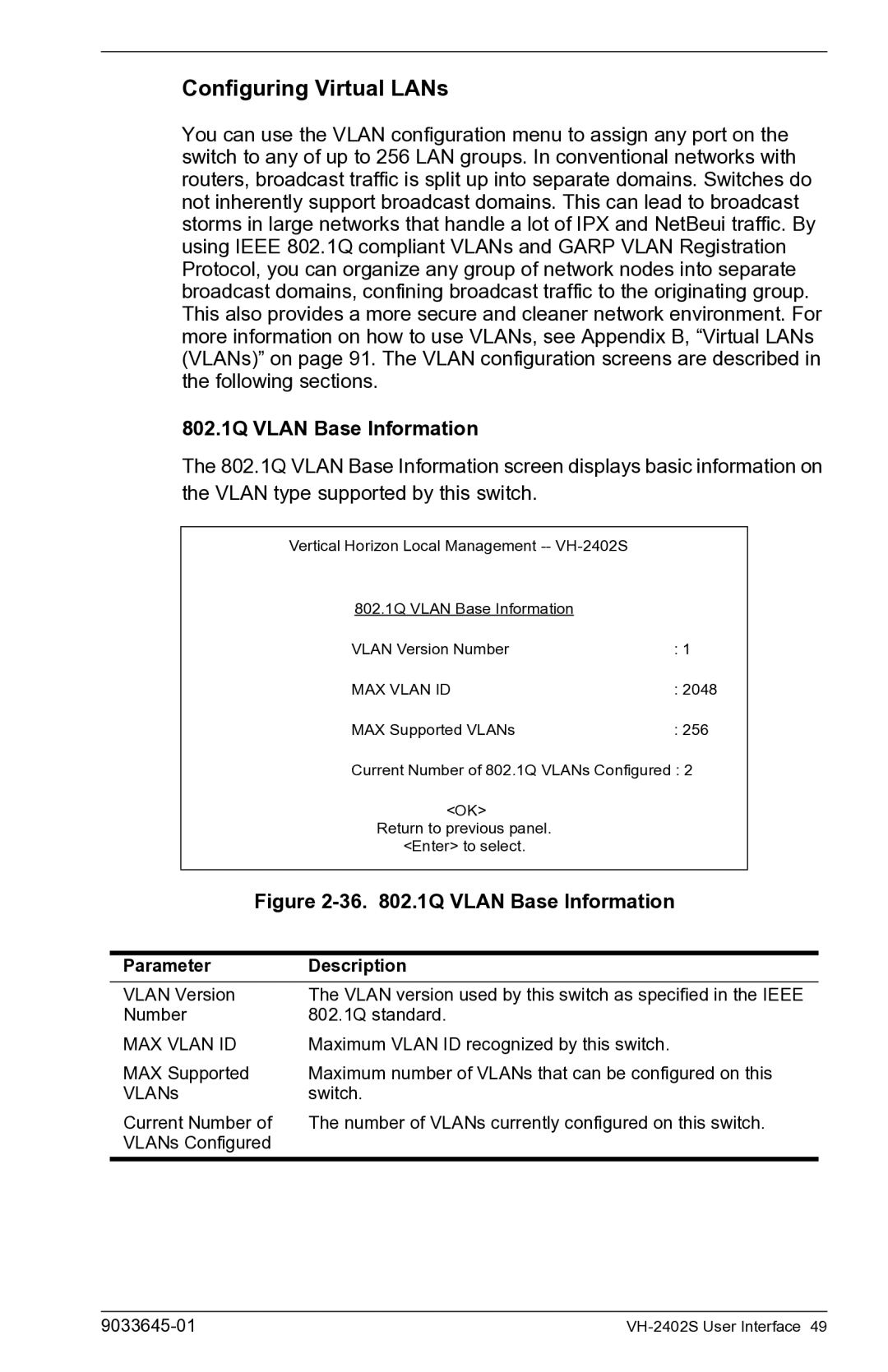
Configuring Virtual LANs
You can use the VLAN configuration menu to assign any port on the switch to any of up to 256 LAN groups. In conventional networks with routers, broadcast traffic is split up into separate domains. Switches do not inherently support broadcast domains. This can lead to broadcast storms in large networks that handle a lot of IPX and NetBeui traffic. By using IEEE 802.1Q compliant VLANs and GARP VLAN Registration Protocol, you can organize any group of network nodes into separate broadcast domains, confining broadcast traffic to the originating group. This also provides a more secure and cleaner network environment. For more information on how to use VLANs, see Appendix B, “Virtual LANs (VLANs)” on page 91. The VLAN configuration screens are described in the following sections.
802.1Q VLAN Base Information
The 802.1Q VLAN Base Information screen displays basic information on the VLAN type supported by this switch.
Vertical Horizon Local Management
|
| 802.1Q VLAN Base Information |
|
|
|
| VLAN Version Number | : 1 |
|
|
| MAX VLAN ID | : 2048 |
|
|
| MAX Supported VLANs | : 256 |
|
|
| Current Number of 802.1Q VLANs Configured : 2 | ||
|
| <OK> |
|
|
|
| Return to previous panel. |
|
|
|
| <Enter> to select. |
|
|
|
|
| ||
| Figure | |||
|
|
|
| |
Parameter | Description |
|
| |
VLAN Version | The VLAN version used by this switch as specified in the IEEE | |||
Number | 802.1Q standard. |
|
| |
MAX VLAN ID | Maximum VLAN ID recognized by this switch. |
|
| |
MAX Supported | Maximum number of VLANs that can be configured on this | |||
VLANs | switch. |
|
| |
Current Number of | The number of VLANs currently configured on this switch. | |||
VLANs Configured |
|
|
| |
|
